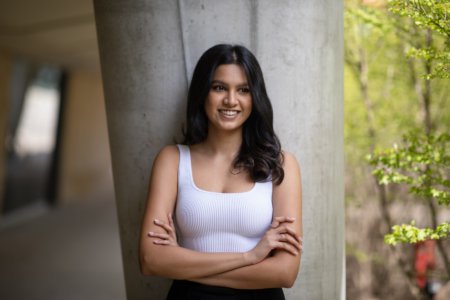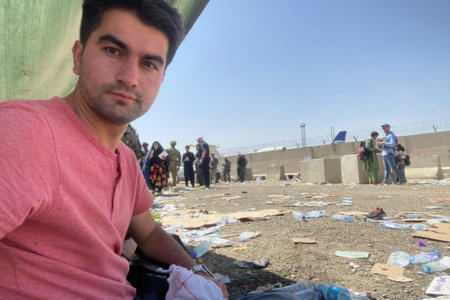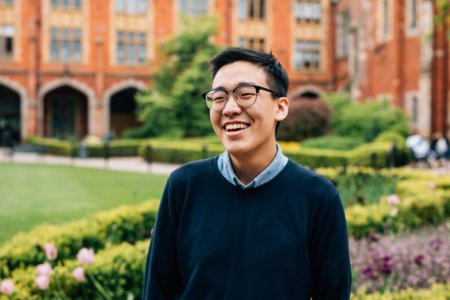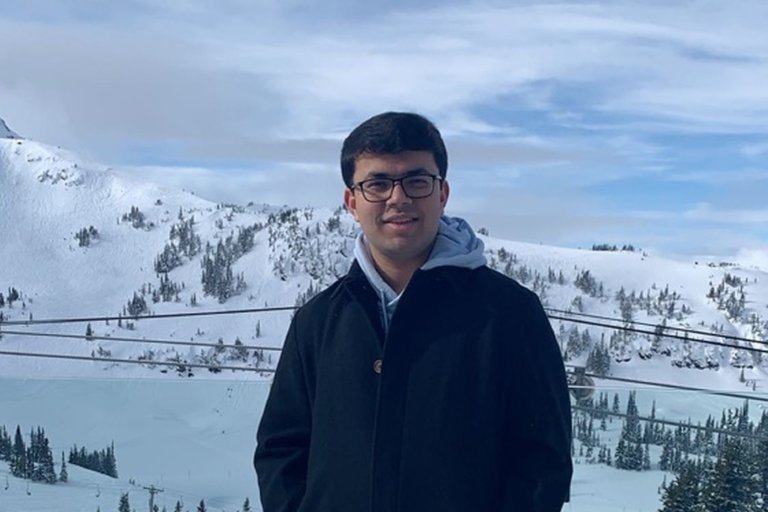
As a chemical engineering undergraduate at the University of British Columbia, the thought of becoming a valedictorian never crossed Raunak Bhutoria’s mind. He only learned of his achievement a few weeks before he was about to graduate and was surprised to discover that he was top of his class.
In speaking about becoming valedictorian, he said: “I don’t think there is a specific way to do it. I believe that hard work will eventually pay off. It’s just constantly being active, engaging with your professors, and helping others.” Raunak will soon be starting as a junior process engineer at NORAM Engineering and Constructors Ltd.
We caught up with the Indian national to learn more about what ignited his passion for chemical engineering and how his international background helped him to adapt to studying abroad:

Raunak Bhutoria was surprised by his valedictorian status, but always believed that his hard work would pay off. Source: Raunak Bhutoria
What made you move to Canada?
I am originally from Mumbai, India. Over the past few years, I travelled extensively as my family frequently moved across numerous locations in India. During middle school, we moved to Dubai and spent a few years there.
Growing up, I studied for my India Certificate of Secondary Education at Gems Modern Academy in Dubai. Subsequently, I did my high school at the Singapore International School in India before moving to Canada for my undergraduate studies in process engineering at the University of British Columbia.
Did you always have an interest in engineering? Tell us more about the specific branch of engineering you were interested in.
I was always interested in a specific engineering stream called chemical (process) engineering. In fact, my father was originally a chemical engineer before he did a Masters of Business Administration (MBA) and moved into a bank. Hence, he is the one who inspired me to pursue chemical engineering as a major.
Process engineering involves scaling up processes. Say there is an idea to produce a specific product or chemical. As process engineers, we will start with the ideation stage within a lab and develop the process of creating that product on an industrial scale to meet global requirements.
Hence, my entire engineering discipline specialises in building an industrial-scale process around a product. It creates the backbone of all industries where we need to operate large industrial operations, refineries or a plant. We also help with process improvements.
Why did you choose to study Chemical (Process) Engineering with a minor in Commerce at the University of British Columbia?
My major — chemical engineering — was clearly inspired by my father. During high school, I realised I was good in science, technology, engineering and mathematics (STEM) subjects. I knew I was interested in engineering, so I chose that specific discipline.
On the minor end, I was always interested in economics and trying to see how the economics of a business works. Having that addition in my undergraduate was great because it opened my eyes to the commercial side of things.
As engineers, we are trained to look for the most optimal method or answer to everything. However, having that economic experience shows you that the most optimal way may not be the most economically sound method. You always have a trade-off between optimising a process and ensuring it is financially feasible. Hence, having that inbuilt was helpful.
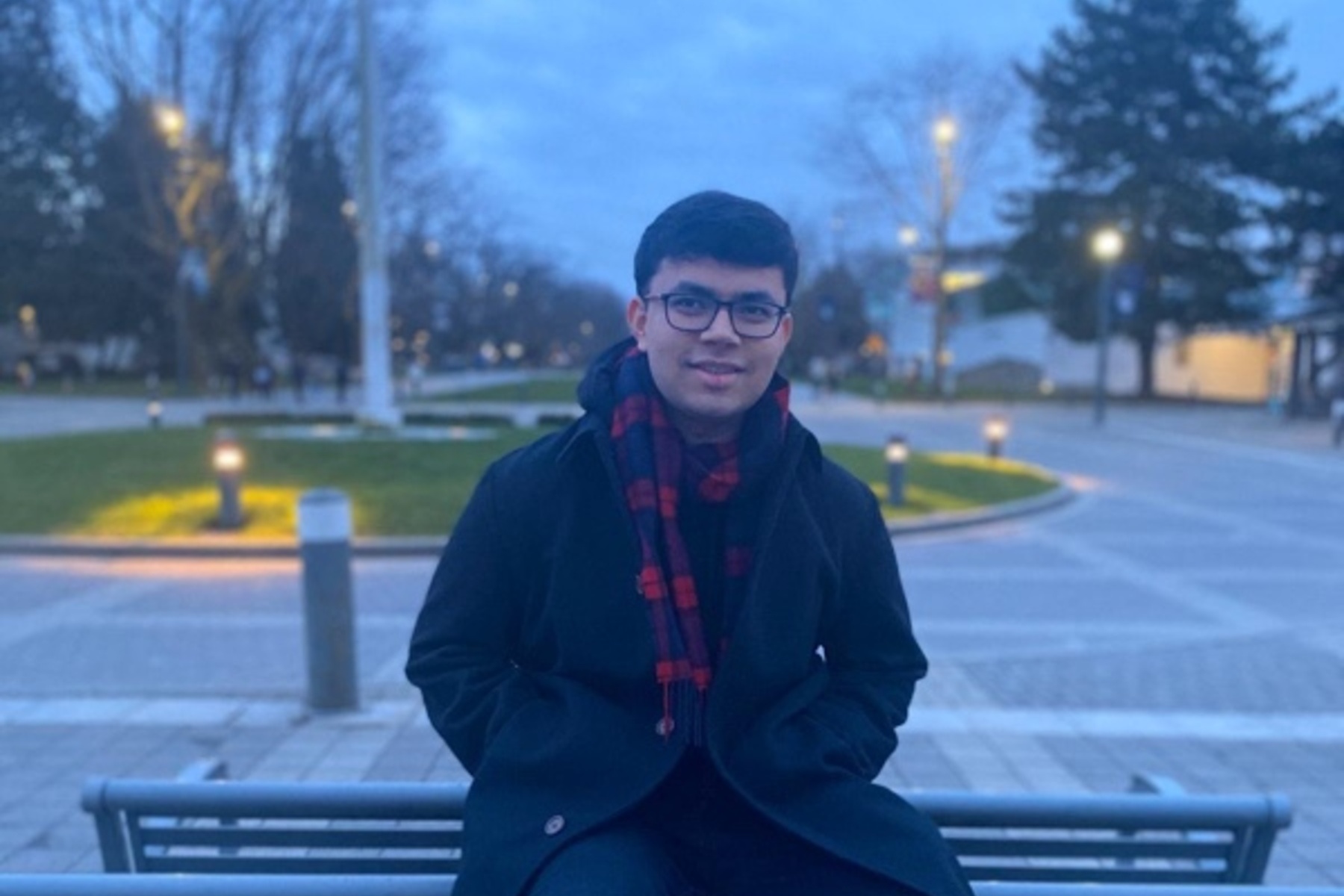
Raunak Bhutoria at the University of British Columbia’s Vancouver campus in February 2020. Source: Raunak Bhutoria
What was it like studying at the University of British Columbia?
Honestly, it was an amazing experience altogether. You get to explore new places, make new friends and experience everything all over again. Doing my undergraduate and living at the university was a great experience. The university also has a stunning campus, and I explored new things daily. Ultimately, I had the chance to learn more about myself.
Were there any challenges you had to overcome while studying abroad in Canada?
Initially, it was a steep learning curve, but everything became more manageable as the years progressed as I developed a circle of friends who I could rely on for everything. I also managed to meet a few of my middle and high school friends at university.
Having moved around a lot from a young age, I became very adaptable, flexible, and open-minded. This helped me when I moved to Canada and allowed me to freely explore new ideas and experiences. My time in Canada also taught me how to handle the responsibility that comes with the freedom of living alone. Staying in a hostel during high school certainly helped as I had to live and do everything independently.
What was the most memorable class you attended during your undergraduate programme?
This is a difficult one. I think my capstone course would be the best class we had. Essentially, this is the project we worked on in our last year as undergraduates. So, we had a group of seven — including me — where we worked on a project for approximately eight months. That project allowed us to build processes from scratch and do all the engineering around it.
It is not just having the chance to work on a project, but it is also an opportunity to create relationships with your group mates and build those relationships with your professors. I think that the entire experience was undoubtedly the best experience at the University of British Columbia.

Raunak Bhutoria (fourth from left) with his capstone group and advisor (third from the right). Source: Raunak Bhutoria
How did you become valedictorian for your class?
I am not sure if I have an easy answer for that. Honestly, it was extraordinary to know that I was the head of the class. I only learned that approximately a few weeks before my graduation. I don’t think there is a specific way to do it. I believe that hard work will eventually pay off. It’s constantly being active, engaging with your professors, and helping others.
All these things are just small things that add up to the end results. Hence, I don’t think a specific process or anything extraordinary allowed me to become a valedictorian. Simply, it’s just putting in the hard work.
Do you have any advice for students who are planning to venture into chemical engineering?
A big thing that everyone presumes about chemical engineering is that it must have a large amount of chemistry. Of course, it is a part of the discipline, but it’s not just all of that. It is a massive misconception for many undergraduates or high school students applying to chemical engineering. It is really the scale-up of the process.
I would say that you have to be interested in this specific stream. You need to know what the stream is about and be interested in the work around it because you will often see that not everyone is as interested in it. A lot of homework and due-dilligence is required before applying to study chemical engineering — you need to understand what this entire engineering is about and if it interests you.
Another piece of advice is to always be open to new ideas. As humans, we are always restricted because of our previous assumptions, history and biases, among other things. Hence, it would be best if you were open to new ideas and concepts from other individuals with different backgrounds, as you often learn from these experiences.
What are your plans now that you have completed your bachelor’s?
I have secured a job. Even though I am in India now, I work remotely. Currently, I am working as an engineering associate at the University of British Columbia’s BioProducts Institute. However, this is an intermediate assignment, and my role ends on July 24, 2022.
After that, I secured another position at NORAM Engineering and Constructors Ltd. — an engineering company headquartered in Vancouver. My role with them as a junior process engineer starts in August, so I am really excited about that technical opportunity. They essentially do the core process engineering activities, which aligns with my interests and future goals.
Currently, I do not have plans for any more academia. However, I may be looking to do an MBA in a few years.








